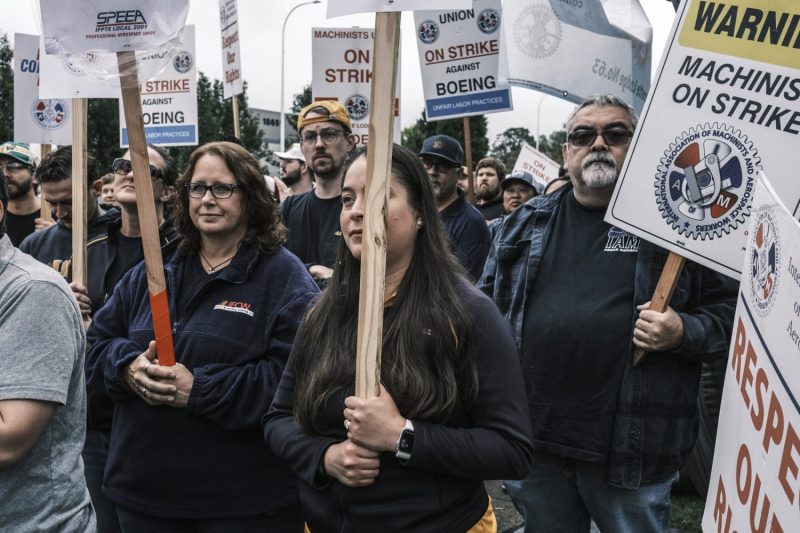
Boeing Faces Deep Losses and Factory Strike: 17,000 Jobs on the Line
Boeing, a longstanding giant in the aerospace industry, has announced plans to cut a significant number of jobs as the company grapples with deepening financial losses amid a factory strike. The decision to slash 17,000 jobs comes as Boeing faces a tumultuous period marked by a spate of challenges, including the impact of the ongoing strike that has disrupted operations and hindered the company’s ability to meet production targets.
The move to lay off a substantial portion of its workforce is a strategic response to the financial pressures that Boeing is currently experiencing. The job cuts will not only help to reduce costs but will also streamline operations and improve overall efficiency within the company. While such decisions are always difficult and often lead to increased uncertainty for employees and their families, they are sometimes necessary in order to ensure the long-term sustainability of the business.
The factory strike that has plagued Boeing in recent months has further exacerbated the company’s financial woes. The disruption caused by the strike has had a significant impact on Boeing’s ability to deliver aircraft to customers in a timely manner, resulting in substantial revenue losses. The strike has not only affected Boeing’s bottom line but has also tarnished its reputation as a reliable supplier of aircraft to customers around the world.
In addition to the factory strike, Boeing has been facing challenges on multiple fronts that have contributed to its current financial predicament. The company has been grappling with a series of setbacks, including the grounding of its 737 MAX aircraft following two fatal crashes, as well as production delays and quality control issues with its other aircraft models. These challenges have not only strained Boeing’s financial resources but have also raised concerns about the company’s ability to maintain its competitive edge in the global aerospace market.
Despite the difficult circumstances that Boeing finds itself in, the company remains committed to weathering the storm and emerging stronger on the other side. By implementing strategic cost-cutting measures, including the reduction of its workforce, Boeing aims to position itself for long-term success and sustainability. While the job cuts may bring short-term pain to employees and their families, they are part of a broader plan to reshape the company and restore its financial health.
As Boeing navigates through this challenging period, it will be crucial for the company to remain focused on its core mission of delivering innovative and reliable aerospace solutions to its customers. By addressing its current challenges head-on and making the necessary sacrifices to ensure its viability in the long run, Boeing can emerge from this crisis as a leaner, more resilient company ready to tackle the opportunities and challenges that lie ahead in the aerospace industry.
